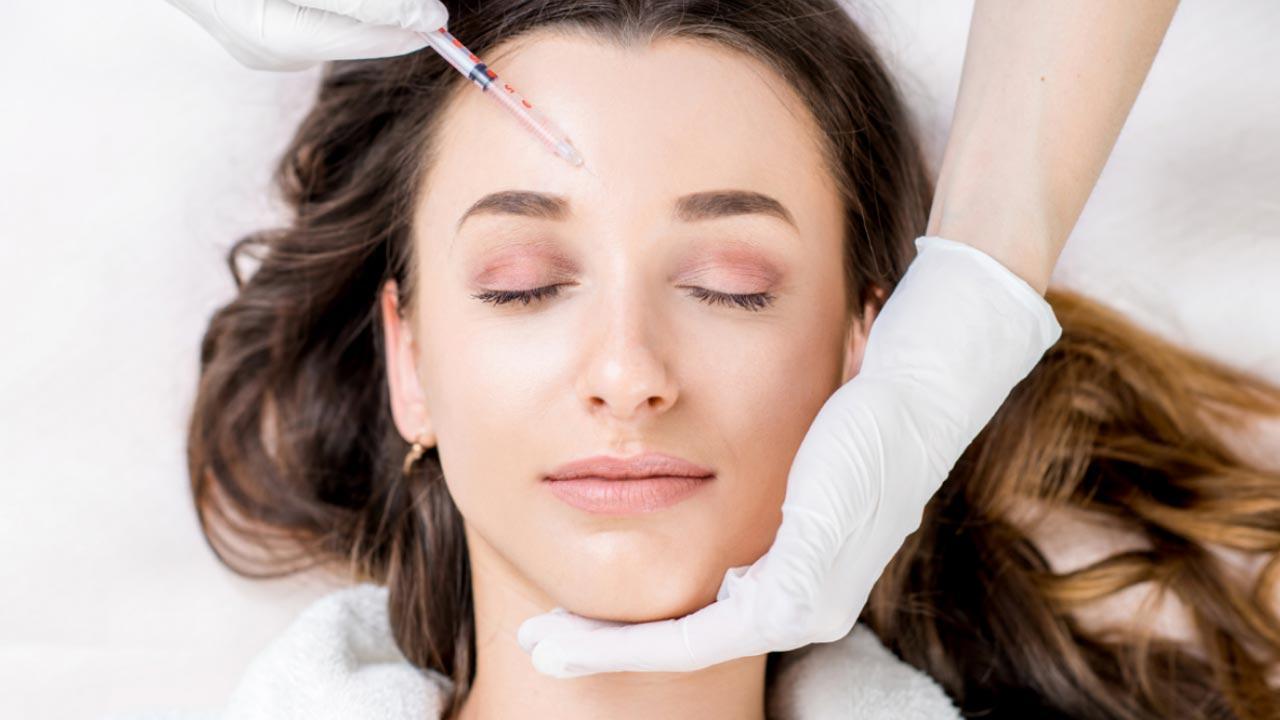
Post her appearance at the Grammys, pop icon Madonna received the flak of media and fans alike who insisted she had undergone a botched up beauty procedure, an accusation strictly reserved for women. While she wasn’t the first female celebrity to be accused of beauty enhancements gone wrong, the message that botox can go so terribly wrong even when celebrities have access to the best experts can sow the seeds of doubt. To clear the air, we got Dr. Rashmi Shetty, global dermatology expert, and founder of Ra Skin and Aesthetics, to answer the most common questions around botox and fillers.
What is botox? How does it work?
The muscles in the face are attached to the skin, unlike in the rest of the body, where they are attached to the bone. Hence, everytime that facial expressions are made, the skin is pulled and lines are formed. Botox is a highly specific protein which blocks the nerves from sending signals to these muscles, thereby restricting muscle contraction. This, in turn, deters line formation which ceases further formation of a deeper etched line.
Is the process painful? How is it administered?
Botox is not painful at all. It is administered with the tiniest of needles, the prick of which feels like an ant bite. However, if required, numbing creams can also be applied before injecting the patient.
Which areas can botox cover and how long would the treatment last?
Along with easing off lines and wrinkles, Botox can also be used for excessive sweating called hyperhidrosis, be it in the palm, face or the underarm. It can also assist with getting rid of open pores, excessive acne, and oily skin. On the face, it can be used to define the jawline and make it narrower. It can also make the eyes look wider open and shape the brow.
Depending on the dosage and the muscle bulk, the Botox could last anywhere from 2 months to 6 months.
What kind of pre and post-treatment care is involved?
Botox does not require any pre-treatment care. Post-treatment, especially for the first 4 hours, it is usually recommended to avoid swimming or doing too much physical activity that could cause jerky movements.
What are some of the most common misconceptions about botox?
Some of the common misconceptions are that it is painful (explained above). People also are not completely aware of how multi-functional botox is and tend to believe that it can only be used to reduce lines and wrinkles. Another common misconception is that Botox is permanent (explained above). Consumers often also use the terms ‘botox’ and ‘fillers’ simultaneously when they are actually quite different.
What are the pros and cons of botox?
Pros:
1. Botox is quick and almost painless.
2. It is administered in the form of injections and hence, is non-surgical.
3. Botox also does not require much downtime, just a few hours post-treatment.
4. It is not a permanent treatment. Botox lasts for 6 months at the most, before a top-up is required. Hence, one can choose to continue the treatment or abandon it.
5. Most importantly, botox is proven to work.
Cons:
1. While also being a pro, a con is that botox requires a top-up every 3 to 6 months.
2. Depending on the muscle bulk and target area, it can take several sittings to work.
3. The biggest con in botox is the risk of overdose which leads to a ‘botched botox’.
What could go wrong if botox is not well-administered?
It is extremely important to have a trained professional administering the injections and not a doctor of convenience. There are a ton of things that could go wrong if the injections are not correctly administered:
1. The face could get asymmetrical.
2. The smile could get crooked or uneven.
3. The eye lids could shut which would take around 3 months to open as the botox starts wearing off.
4. The brow could drop.
5. Facial expressions could change.
6. Dry eyes
What is the difference between botox and fillers?
There is a vast difference between botox and fillers. Botox works by easing the muscle. It acts on substance P which in turn reduces pain like migraines, trigeminal neuralgia. It also assists with reducing the sweat gland and sebum secretion.
The filler is an inert substance, like a hyaluronic acid. The filler sits where it is injected to add volume. It is used to mould the face.
What are the pros and cons of fillers?
Pros:
1. Fillers stimulate the production of collagen which helps to protect the skin.
2. It is non-surgical, administered in the form of injections.
3. Fillers assist in creating a more youthful appearance.
Cons:
1. The cost of fillers is quite high.
2. Fillers are not permanent and also need to be topped-up.
Also Read: Love Korean skincare routines? Here`s all you need to know about yuzu
Stay connected with us on social media platform for instant update click here to join our Twitter, & Facebook
We are now on Telegram. Click here to join our channel (@TechiUpdate) and stay updated with the latest Technology headlines.
For all the latest Health & Fitness News Click Here
